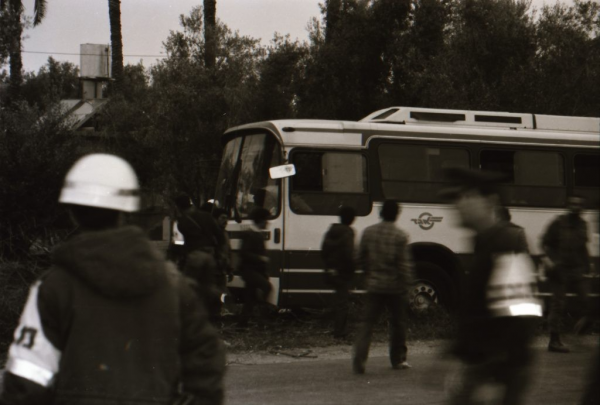
On April 10, 1984, four fedayeen from the Popular Front for the Liberation of Palestine kidnapped a Zionist bus heading from Tel Aviv to Ashkelon, with 41 passengers on board, and forced it to head to Gaza.
The operation later became known as "Operation Bus 300," and its perpetrators were the heroic comrades (Jamal Mahmoud Issa Qablan, Majdi Ahmed Abu Jama, Sabhi Shahada Abu Jama, and Mohammed Sabhi Baraka).
Some sources indicate that the four comrades carried out the operation without any weapons except a knife and an empty bag that they threatened to detonate to protect themselves from the Israeli soldiers who killed them in cold blood without posing any threat to the hostages inside the bus.
The comrades' demands included the release of 500 prisoners held by the Zionist entity at the time.
They hoped to reach the Egyptian border to exchange the hostages for prisoners. However, before reaching the Egyptian Rafah border, the heroic comrades allowed a woman to disembark from the bus unharmed after she informed them that she was about to give birth and had informed the occupying forces, who subsequently pursued the bus and managed to stop it on the outskirts of the town of Deir al-Balah in the Gaza Strip. The Israeli occupying forces, including army units, border guards, and intelligence, surrounded it.
Negotiations with the youth began at midnight in an attempt to deceive them and gain time. Then, the assault on the bus began on the morning of Friday, April 13. The soldiers killed two of the fedayeen, Jamal Mohammed Qablan (20 years old) and Mohammed Sabhi Baraka (19 years old), and captured their comrades, Sabhi Shahada Abu Jama (18 years old) and Majdi Abu Jama (18 years old), alive.
On the same day, "Israeli Radio" broadcasted that Palestinian fighters were killed in the operation, and that the army arrested two others, but then released a statement saying that the four fighters were killed in the operation, and before long, a third statement was issued stating that two of the perpetrators were injured in the operation and later died of their wounds. On the same day, Israeli bulldozers demolished the homes of the families of the four martyrs in the areas of Bani Suhaila and Abasan near Khan Yunis.
On the morning of Sunday, April 15, 1984, The New York Times reported the arrest of two of the perpetrators of the bus hijacking, who were still alive. Then, the Hadashot newspaper published a photo showing the handcuffed prisoner Majdi Abu Jama being escorted by two of the killers, taken by photojournalist Alex Levac.
P.S: "Fedayeen" is an Arabic term that translates to "those who sacrifice themselves." It refers to guerrilla fighters, typically associated with Palestinian or Arab nationalist movements, who engage in armed struggle and acts of resistance against perceived oppressors or occupying forces. Fedayeen are known for their commitment to their cause, often willing to undertake risky and self-sacrificial actions in pursuit of their objectives. They have been active in various conflicts in the Middle East, particularly during the Arab-Israeli conflict.

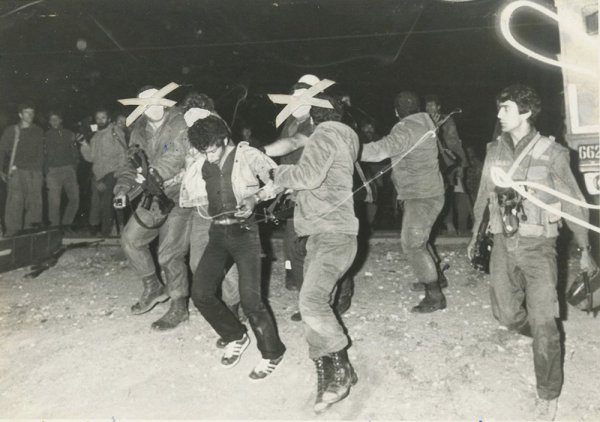
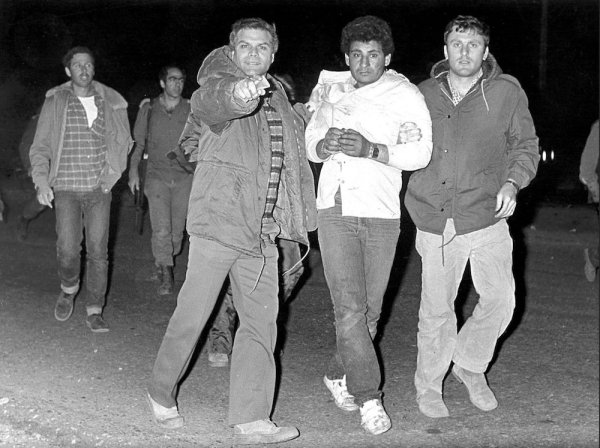

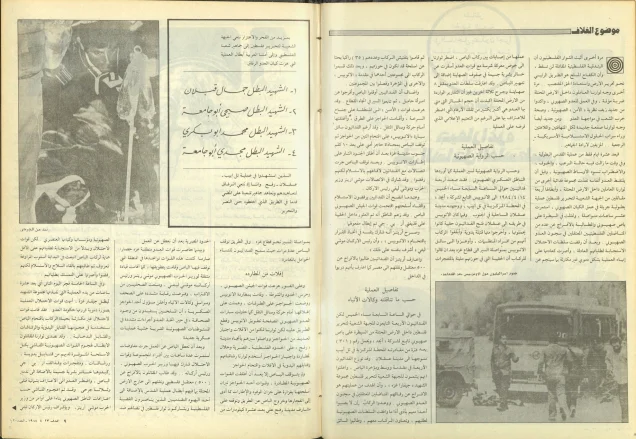
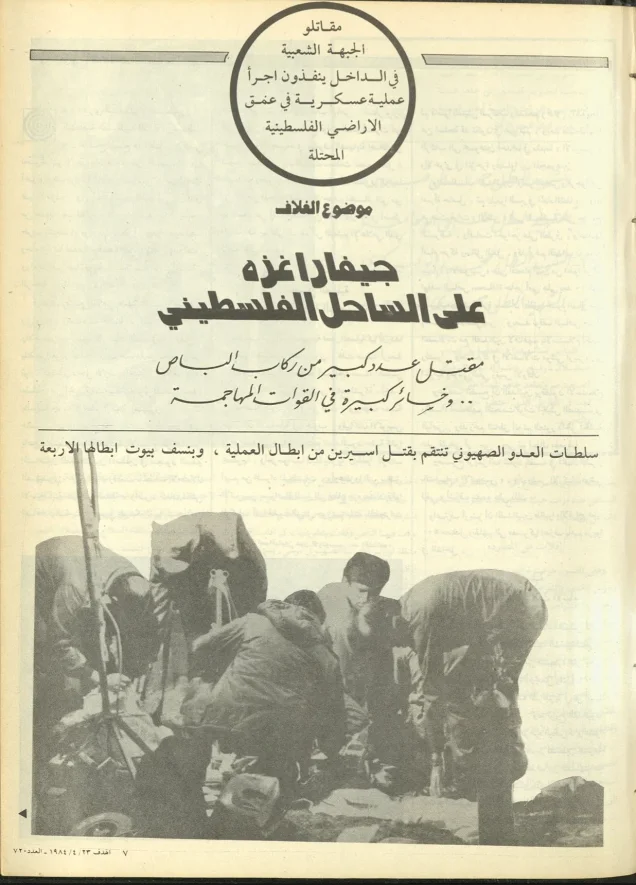
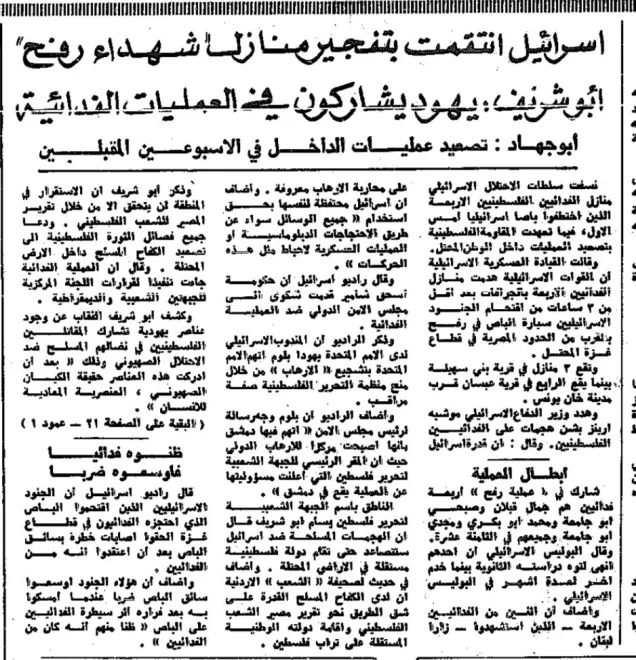
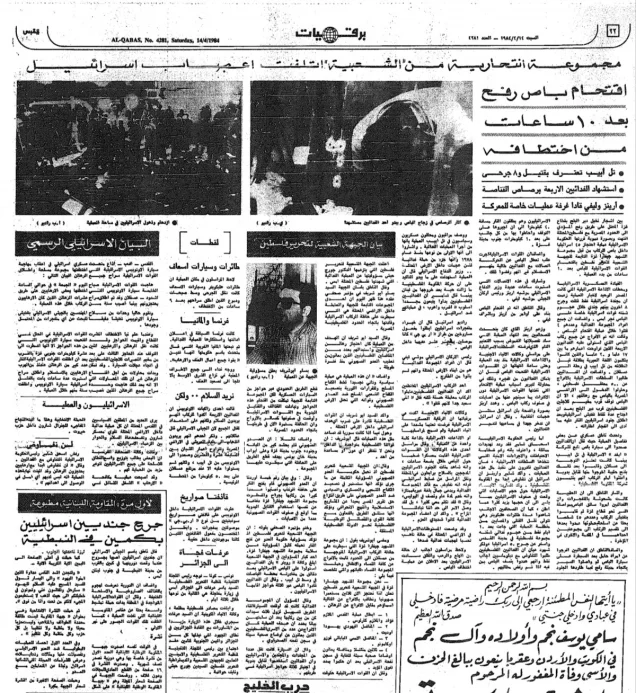
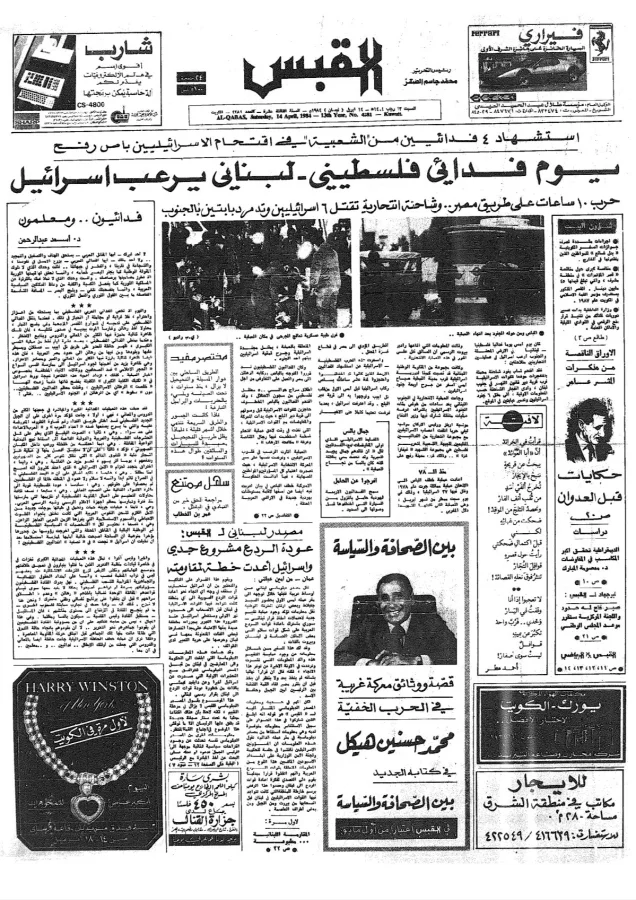
Share your opinion